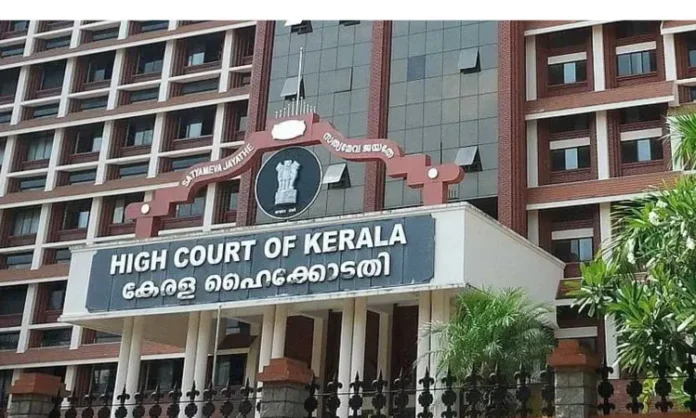Kerala Consumer Forum directs Future Generali to pay hospital bill and ₹30,000 for unfair insurance claim denial. Insurance claim denial Kerala case.
The Ernakulam District Consumer Disputes Redressal Commission (EDCDRC) came down heavily on Future Generali India Insurance for rejecting a genuine health insurance claim, reaffirming that insurance exists to protect, not penalize, consumers.
Commission Orders Compensation for Policyholder
In a significant order reinforcing consumer rights, the District Consumer Disputes Redressal Commission, Ernakulam directed Future Generali India Insurance Company Ltd. and its health division, Future Generali Health (FGH), to pay the balance hospital bill along with a compensation of ₹30,000 to a policyholder whose legitimate health insurance claim was unjustly denied.
The three-member bench comprising President D.B. Binu, V. Ramachandran, and Sreevidhia T.N. delivered the order after finding that the insurer had failed to honor its commitment despite the claimant fulfilling all procedural requirements.
The Commission observed that denying the claim amounted to a deficiency in service and an unfair trade practice, both of which are violations under the Consumer Protection Act, 2019.
Case Background
The complainant, a policyholder under the Future Generali health insurance scheme, had undergone hospitalization and subsequently submitted a claim for reimbursement. Despite furnishing all necessary medical records and invoices, the insurer rejected the claim citing “non-disclosure of pre-existing conditions.”
However, the Commission found that the insurer had not produced any substantive evidence to prove such non-disclosure. The bench emphasized that the insurer’s actions reflected an arbitrary interpretation of the policy terms, disadvantaging the consumer.
President D.B. Binu observed:
“Insurance is meant to be a safety net, not a hurdle. Denial of a rightful claim undermines the very purpose of an insurance contract and erodes public trust in the system.”
This remark underscores the judiciary’s continued stance that insurers must act in good faith and ensure fair dealing with policyholders.
Findings of the Commission
After examining the submissions and supporting documents, the Commission concluded that the insurer’s refusal was legally unsustainable. It noted that the insured had fully disclosed medical details at the time of obtaining the policy, and no material suppression was proved.
Further, the insurer was criticized for failing to conduct proper verification before repudiating the claim. Such negligence, the Commission said, caused unnecessary mental agony and financial distress to the complainant.
Consequently, the Commission ordered Future Generali to:
- Pay the balance hospital bill as per the admissible claim amount.
- Compensate the complainant with ₹30,000 for mental agony and inconvenience.
- Pay litigation costs within a stipulated period, failing which the amount would carry interest until realization.
Consumer Protection and Accountability
The ruling reiterates that insurance companies cannot arbitrarily deny claims on technical grounds without establishing proof of misrepresentation or fraud. The Commission highlighted that consumers, especially senior citizens and patients in vulnerable conditions, should not be subjected to delays and denials born out of procedural rigidity.
This case adds to the growing body of decisions from consumer forums across India that stress corporate accountability in the insurance sector. Courts and commissions have increasingly emphasized that policy documents must be interpreted liberally in favor of the insured where ambiguity exists.
For more coverage on similar rulings, visit the News Section of The Legal Observer.
Judicial Perspective on Insurance Disputes
Legal experts note that the EDCDRC’s ruling aligns with previous judgments from national and state consumer commissions that favor transparency and fair play. According to the principles laid down in The Elements of Journalism by Kovach and Rosenstiel, journalism serves democracy best when it holds powerful institutions accountable—a value reflected in the Commission’s reasoning as well.
As outlined by Wynford Hicks in Writing for Journalists, clear communication of such rulings plays a vital role in public awareness, enabling citizens to assert their rights effectively.
The case also reflects what Alain de Botton described in The News: A User’s Manual—that legal and consumer stories, when reported accurately, empower the public to engage critically with systems meant to serve them.
Impact on Policyholders
The decision is expected to set a precedent for similar disputes in Kerala and beyond. It reinforces that insurers must honor valid claims promptly and transparently. Consumers can draw confidence from the Commission’s message that justice will not be denied to those wronged by corporate neglect or procedural misuse.
The judgment serves as a reminder that insurance is a social contract, and its integrity depends on both parties—insurer and insured—acting with honesty and fairness.
For more legal updates and case insights, visit The Legal Observer and subscribe to our YouTube Channel for expert discussions and case analyses.




